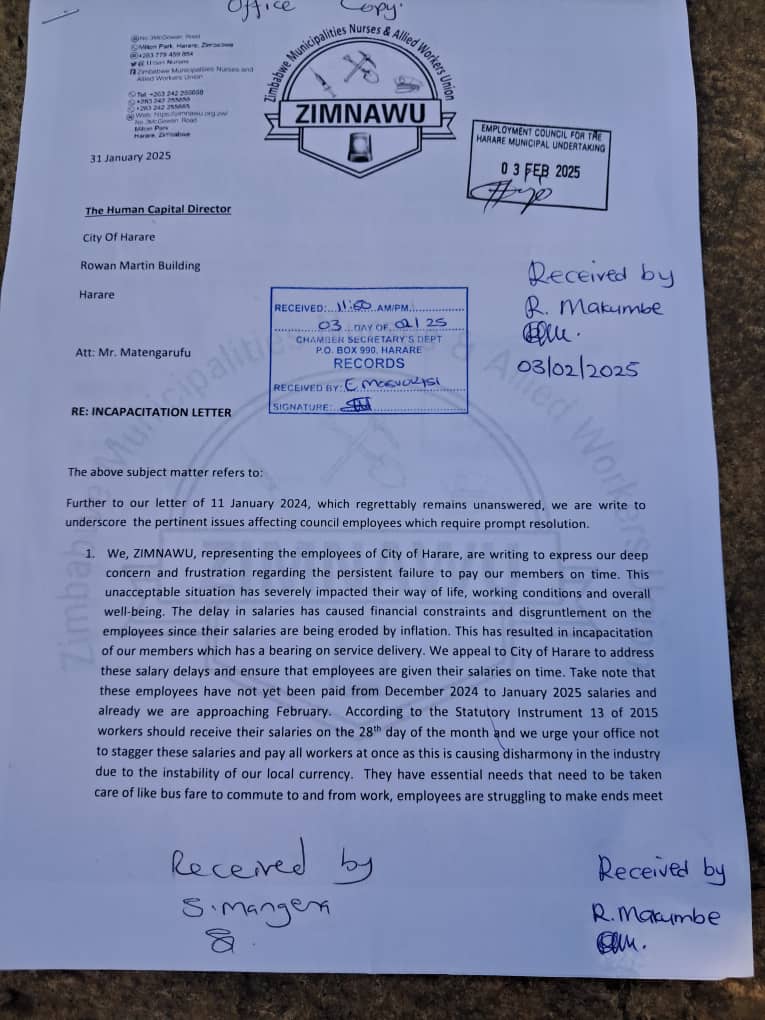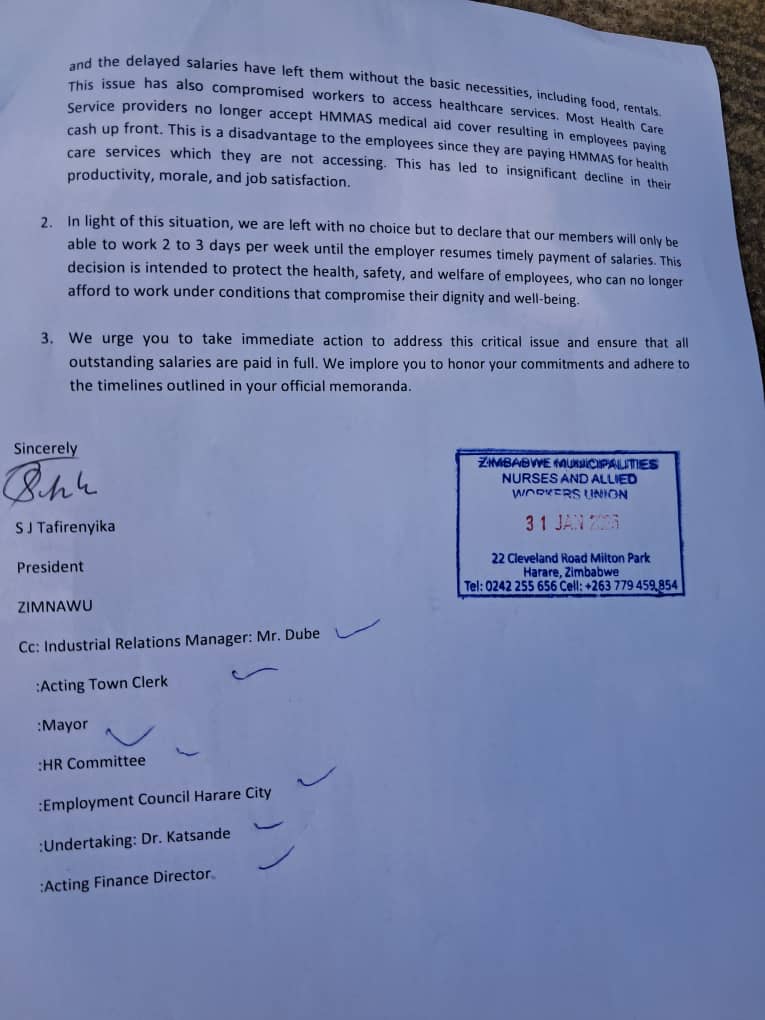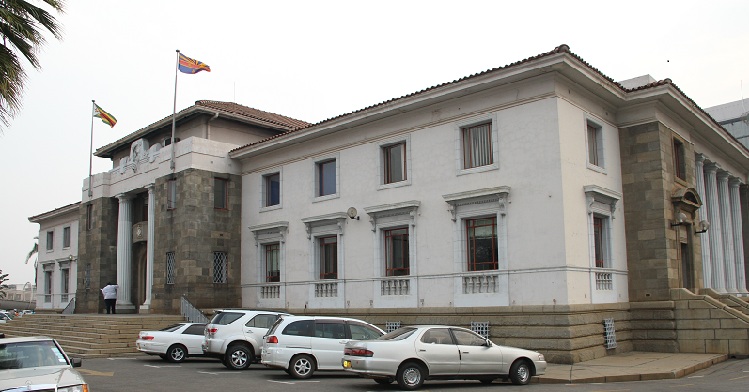The Zimbabwe Municipalities Nurses and Allied Workers Union (ZIMNAWU) has raised serious concerns over the persistent delay in salary payments for City of Harare employees.
Despite previous correspondence on January 11, 2024, the issue remains unresolved, leaving workers frustrated and financially strained.
Simbarashe James Tafirenyika of ZIMNAWU expressed deep frustration over the failure to pay salaries on time, highlighting the severe impact on employees’ livelihoods, working conditions, and overall well-being.
He said, “Workers have reportedly not received their salaries for December 2024 and January 2025, and with February fast approaching, their financial situation continues to worsen.”
He emphasized that, according to Statutory Instrument 13 of 2015, salaries should be paid by the 28th of each month. However, the city’s failure to meet this deadline has caused significant distress among employees, particularly those in higher grades.
ALSO READ: Chisango’s Acquittal Raises Serious Concerns Over Judicial Accountability


For example, workers from Grade 11 up to Grade 5 have not received their salaries for December and January, with their last payment made in November 2024. Additionally, some employees have yet to receive their bonuses.
Furthermore, workers have been unable to access healthcare services due to medical aid providers rejecting HMMAS medical aid cover, further exacerbating their hardships.
As a result of these ongoing challenges, ZIMNAWU has declared that employees will only be able to work two to three days per week until salary payments are regularized. This move aims to safeguard workers’ health, safety, and welfare, as they can no longer afford to continue working under such difficult conditions.
The union is urging the City of Harare to take immediate action to resolve the crisis by paying all outstanding salaries in full. They have called on authorities to honor their commitments and adhere to the agreed salary timelines to restore stability and morale among employees.
The situation remains critical, and all eyes are on the City of Harare to see how they will respond to the pressing demands of their workforce.
